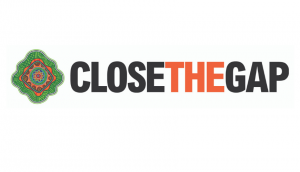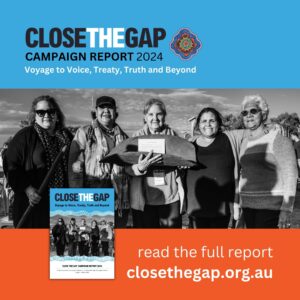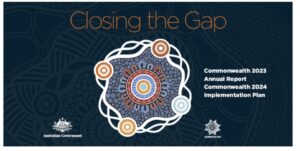May 2022
This year’s theme – Be brave Make change – reminds us of those who came before us. Those with courage, conviction, and the bravery to fight for our collective rights. We, as First Nations peoples, and we as Australians, live in a better nation because our Elders, our ancestors had the courage to dream, the foresight to organise, and the will to drive political and social change. Thanks to their bravery, we each, in our own way, inhabit a more just society because someone else did the work, laid the foundation and gifted us their dream of a better nation.
Research undertaken by Reconciliation Australia highlights that most Australians believe in the central tenet of reconciliation and that the relationship with Aboriginal and Torres Strait Islander people matters. The fundamental question now, as it has always been is – how can we pursue a truly reconciled nation? First, we must acknowledge that, in this nation, the colonising process never stopped and while contemporary Australia prides itself on being a fair, just, democratic and multicultural nation, obstacles to the effective representation and participation of Aboriginal and Torres Strait Islander peoples, remain largely unaddressed.
The dominant narrative of this nation has always been one of progress and there were times when it seemed like real progress might take hold and transform our country. From the wave hill walkout, the Tent Embassy, to this grass roots Indigenous-led Health Campaign, over the decades there have been so many achievements – both individual and collective – to celebrate. But, while our nation has slowly marched towards a fairer, more equal and just society we still have many roads left untravelled. Aboriginal and Torres Strait Islander peoples continue to bear the burden of gross social and health inequity, and the road to the full acknowledgement of our rights as First Nations peoples remains unfinished business. But the equality our elders fought for, the nation our ancestors dreamed of, we all have responsibility to build.
If the goal of reconciliation is our coming together as one, then each and every one of us is indispensable. So too are our stories, our dreams and our shared histories – no matter how difficult to face. Many stories, many histories weave together to make up the beautiful tapestry that is the foundation of this nation. But this tapestry must be a true reflection of who we are. Reconciliation in this country has taken a long and winding road and I am sure you can all agree that we have a fair way to travel yet. We must acknowledge this, not to scold or place blame. To give ourselves the opportunity to be the social democracy that has the capacity and the will to thrive in our diversity. To recognise our differences as Indigenous and non-indigenous Australians and acknowledge how this can strengthen the bonds between us.
Since colonisation our ancestors, our allies, our collective national spirit has envisioned a nation that could do better, be better. If we want to transform the lives of First Nations Australians, we must draw on the same strength and conviction that those before us did. We need to be visionaries, storytellers, and truth seekers. Because it will take more than just political and social will, it will take our brightest minds and true leadership to be brave and make change. The solutions for our peoples must be led by our peoples, but the vision of a better, fairer Australian society that recognises and supports First Nations rights, will only become a reality if we have support from within the 97% of our fellow Australians. The pursuit of a reconciled nation is the work of many, we all have a role to play.
We are tired, as we should all be, of words and promises that are not backed up by substance. Our voices are demanding change, the type of change which can ultimately bring us together as one, through mutual respect and the observance of each of our inherent rights and human dignity.




